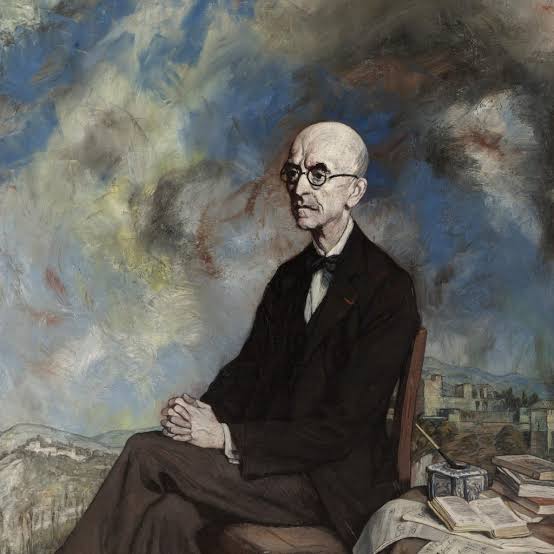
Manuel de Falla (1876-1946)
Born in 1876 in Cadiz, the historical seaport town at the southern-most tip of Andalusia, Manuel de Falla has been called the greatest Spanish composer of the 20th century. His formal musical education began with piano lessons, and when de Falla was 20 his family moved to Madrid where he studied with the distinguished teacher José Tragó. He then went on to study composition with Felipe Pedrell, the teacher and scholar who led the revival of Spanish music towards the end of the nineteenth century. He was also influenced by Louis Lucas’ theories of deriving harmonies from natural resonances.
De Falla’s aim was “truth without authenticity,” and he had realized it by the time he was 29, when he wrote his first masterpiece, La Vida Breve (Brief Life), a spare, tragic zarzuela about a young Gypsy woman, forsaken by her lover, who comes to his wedding feast to die. De Falla moved to France a few years after writing it, and when it was performed there, in 1913, it brought him instant recognition. In France, he completed several chamber works and began work on Noches en los jardines de Espãna (Nights in Gardens of Spain) before the outbreak of war in 1914 compelled him to return to Spain. By the time he wrote Nights in the Gardens of Spain in 1915, de Falla had learned more about expanding folk sources from Russians like Rimsky-Korsakov. All his life, he continued to adopt new ideas as he was exposed to other approaches to musical nationalism. The lively and cheerful El sombrero de tres picos (Three-Cornered Hat) plainly shows the influence of Stravinsky, as does the exuberant puppet opera El Retablo de Maese Pedro, which was based on an episode from Don Quixote and is often compared to Stravinsky’s Histoire du Soldat.
Following the deaths of his parents in 1919, he settled in Granada, where he remained until the end of the Spanish Civil War (1939). He composed several of his most important works, including El retablo de maese Pedro (Master Peter’s Puppet Show), Psyché and Concerto per clavicembalo (Harpsichord Concerto). An ardent pacifist, disillusioned by the Spanish Civil War and War World II, he moved to Argentina and worked there until his death in 1946, just a few days before his 70th birthday. Influenced by Latin American folk traditions, he started to write a vast oratorio, Atlántida, about the lost continent of Atlantis and exploration in the New World. It remained unfinished at the time of his death. (based on articles by Chester Music and in the New York Times).
Maestro Buslje has a special place in his heart for Spanish music and flamenco music. His maternal grandmother was from Andalucía and he grew up listening to flamenco and zarzuelas. His great-aunt, who was a piano teacher and lived in Alta Gracia, Argentina, took classes from de Falla when he lived there, and de Falla was a frequent guest in her home. The Pan American Symphony Orchestra will perform de Falla’s Siete Canciones Españolas with mezzo-soprano, Allegra de Vita, on June 15, 2024 at the Kennedy Center for the Performing Arts.













